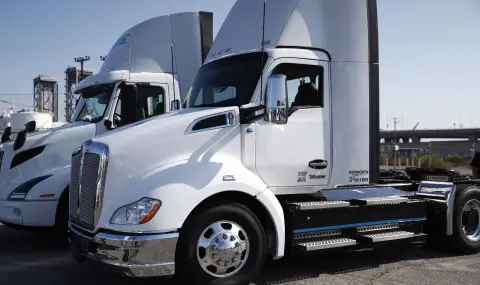The US Department of Commerce has announced the start of a formal investigation into the impact of imports of medium- and heavy-duty trucks, buses, vans and related parts on the country's national security, News.bg reports.
The procedure is being conducted under the so-called “Section 232“ of the US trade law and could serve as the basis for imposing new tariffs on foreign vehicles.
According to a statement from the ministry, public comments and information will be collected by mid-May regarding domestic production capacity, as well as potential dependence on a limited number of foreign suppliers.
The hardest hit from the possible tariffs is expected to be Mexico, which is the largest exporter of medium- and heavy-duty trucks to the US. Data from January shows that imports from the southern neighbor have tripled since 2019. In addition to Mexico, the countries affected are likely to include Canada and Japan.
The US International Trade Administration notes that Mexico is home to 14 truck and bus manufacturers, as well as two companies specializing in engine production. The country is a world leader in the export of tractor units, with 95% of its production destined for the US market.
Among the companies that could be directly affected is Stellantis - the parent of Chrysler, which produces Ram heavy-duty trucks and vans in Mexico. Sweden's Volvo Group also plans a significant investment - $700 million - in a new plant in Monterey, scheduled to open in 2026.
The investigation coincides with changes in trade policy by President Donald Trump, who earlier this month imposed a 25% tariff on passenger cars and announced plans to extend the tariffs to imported auto parts by May 3.
The Commerce Department stressed that the investigation will also analyze the effect of "unfair trade practices" and "state-subsidized overproduction" that negatively affect domestic prices in the United States.
At the same time, the auto industry is urging the White House to abandon the new tariffs, warning that such a step could raise transportation costs - just at a time when the administration is trying to control inflation, especially in sensitive sectors such as food.
